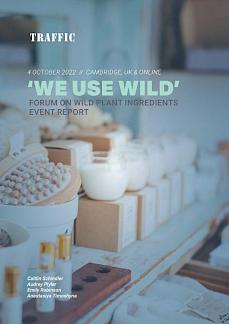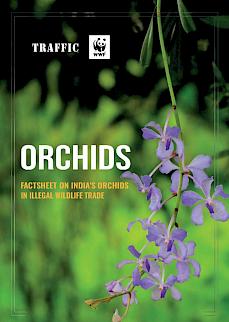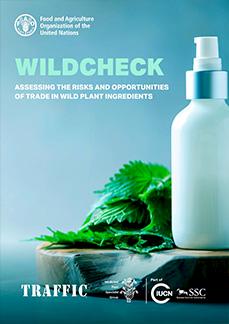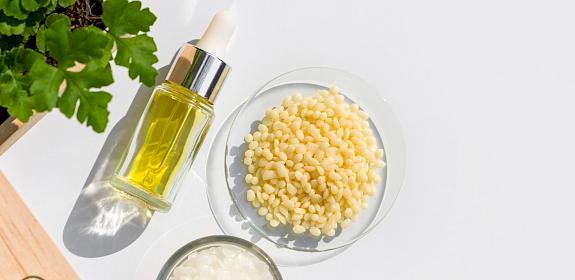
Wild Devil's Claw extracted from the roots of Harpagophytum procumbens
i
ethical, legal and sustainable trade in wild plants
Wild plants are often wildlife trade's most unrecognised commodity. Human wellbeing in both rural and urban areas the world over is inextricably tied to an incredibly diverse array of wild plant ingredients, used in food, drink, pharmaceuticals, traditional medicine, beauty, cosmetics and beyond.
Their collection, processing and trade supports millions of collectors, often from some of the most impoverished or marginalised communities in the world, and underpins a global industry worth hundreds of billions of US dollars. Although this "hidden harvest" receives little attention from the public, and is usually met with enthusiasm from an increasingly "organically-minded" consumer market, it is a wildlife trade that is in desperate need of increased attention, research and private sector commitments.
50k–70k
medicinal and aromatic plant species are estimated to be used globally, many of which harvested from the wild
60–90%
of medicinal and aromatic plant species in trade are wild collected
only 7%
of medicinal and aromatic plant species have been assessed against extinction threat criteria
1.3 billion kg
of botanical ingredients were exported by China in 2013 alone
~30,000
the number of plant species with well documented medicinal and aromatic uses
the Wild at Home
This TRAFFIC reports sets the scene for the trade in wild plants, exploring their global harvest, trade, and use throughout the world, and their place within our homes.
The sustainable harvest of wild plants can provide vital resources for poor people, as well as much-needed income. It can also provide holistic management for other species and ecosystems at large, creating a win-win situation for fauna, flora and human communities.
what's the issue with wild plants?
Aside from being hidden from view yet widely consumed, the trade in wild plants is increasing rapidly, with very little attention given to its sustainability or traceability.
A snapshot of the wild plant trade, using a Customs code for medicinal and aromatic plants (MAPs), HS1211, shows that global trade has increased from US$1.1 billion in 1999, to US$3 billion in 2015. The growth of "natural" and "organic" consumer demand will only add to this pressure on wild collected species and their ecosystems. Compounding the issue, the (sometimes intentional) complexity of global wild plant trade chains makes it difficult to track volumes and species, threatening their survival in the wild, the wider wildlife that depend on them, and the livelihoods of local collectors.
Schisandra berries, often know as the "five flavour" berry, is wild collected in China and used in traditional medicines and foodstuffs
i
opportunities and solutions for wild plants
sustainable management
A growing number of companies are realising that investing in sustainable management of wild plant harvesting and associated supply chains makes good business sense.
The FairWild Standard is leading market transformation through certification schemes and best practice guidelines, simultaneously engaging all those engaged with wild plants to ensure ethical and sustainable practices.
alternative livelihoods
Sustainable, legal, and ethical wild plant harvesting can provide an alternative livelihood to poor or marginalised communities, providing both a source of income as well as an incentive to conserve natural landscapes.
There are thousands of communities the world over who have been harvesting plants from the wild for generations. Supporting these activities preserves invaluable traditional knowledge and engages local stakeholders in contributing to wider wildlife conservation.
The Samburu in Kenya collect wild frankincense resin, widely used throughout beauty and healthcare © Akroyd & Harvey / Conflicted Seeds
i
wildlife conservation
There are scores of examples of where sustainable management of wild plants provides an incentive to simultaneously maintain the habitat of other wildlife species and wider ecosystems.
In China, FairWild implementation of schisandra berry harvesting is helping to protect the forests of the Giant Panda. In India, a project between FairWild and Pukka Herbs Ltd. is protecting bibhitaki and haritaki trees, the nesting home of the charismatic Great Hornbill.
Giant panda Ailuropoda melanoleuca © naturepl.com / Eric Baccega / WWF
i
key species in trade
There are approximately 3,000 different species in global trade, with thousands more consumed locally the world over.
As a business or as a consumer, find out what wild plants are either in your supply chains or in your home, and check whether their sourcing and use is sustainable! With so many wild plants being used, we've developed a short list of key species to help get you started in your identification ...
the Healing Power of Nature
related news and reports
explore news, projects and reports related to the sustainable trade in wild plants
related reports to WILD PLANTS trade
Explore TRAFFIC reports on the trade in wild plants and the application of sustainability frameworks such as the FairWild Standard.
Visit our resource library for the full TRAFFIC publication archive.
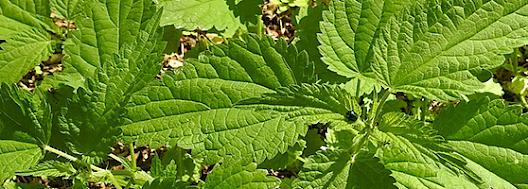
Project LENA
The Local Economy and Nature Conservation in the Danube Region (LENA) project is helping harvesters generate revenue and preserve traditional knowledge through sustainable wild plant harvesting.
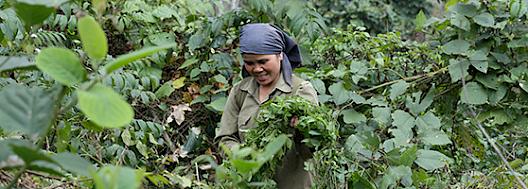
FairWild
The FairWild Foundation was established in 2008 to promote the sustainable use of wild-collected plant ingredients in trade and ensure a fair deal for the communities who harvest them.

Jatamansi project
Working with communities to deliver a locally-appropriate market model for the sustainable and legal trade in CITES-listed species such as Jatamansi, to protect biodiversity and local livelihoods.

